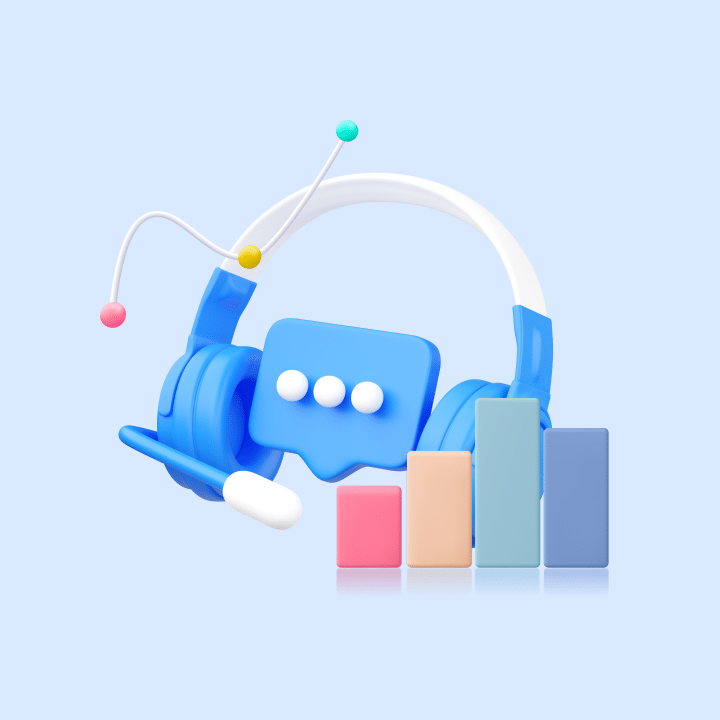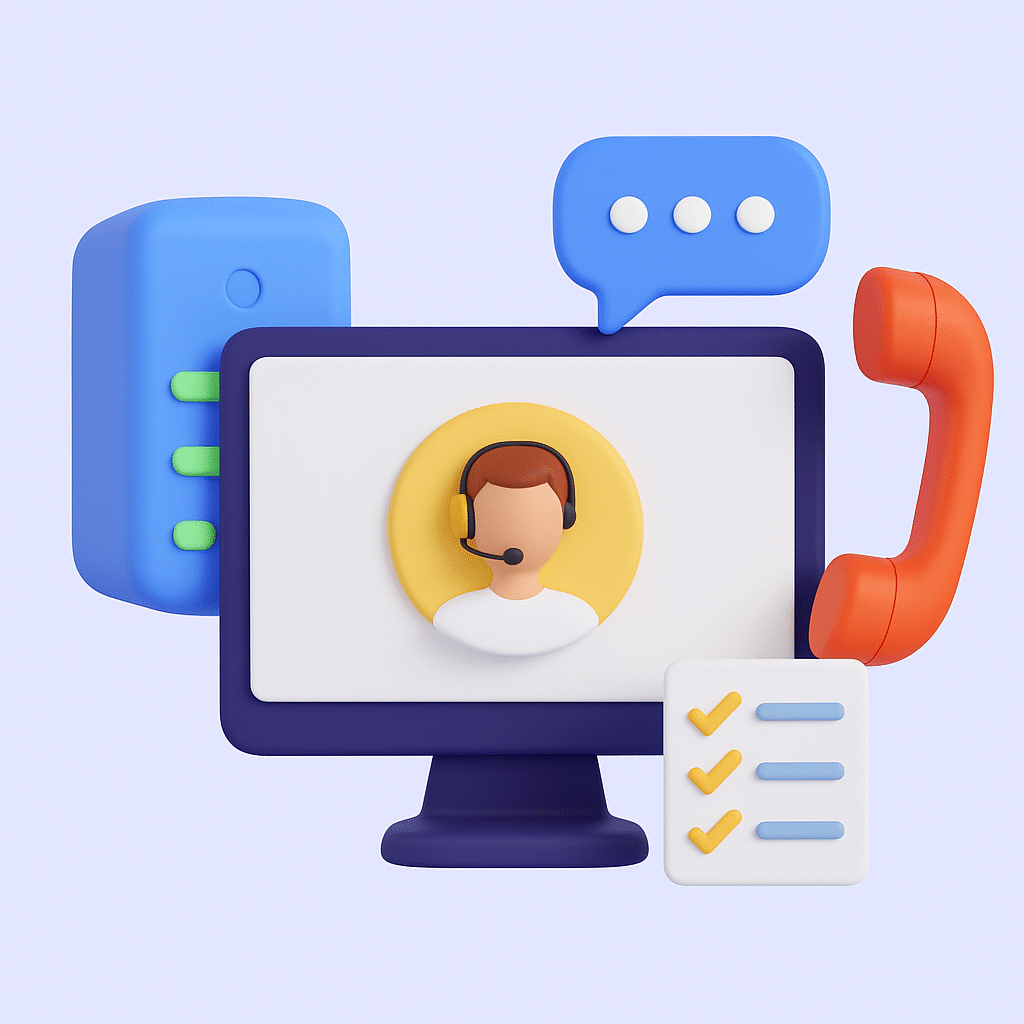Having a great product or service will only take you so far. What’s more important is knowing how to interact with your customers.
Whether you’re talking to your customers via email, phone, live chat, or social media, how you communicate and make customers feel sets the tone for how they perceive your brand.
So, how do you create positive interactions with customers?
Here are seven practical tips that will help.
Table of Contents
- What is Customer Interaction Management?
- Why is managing customer interactions so meaningful?
- 6 effective ways to manage customer interactions
- Conclusion
What is Customer Interaction Management?
Customer Interaction Management refers to the systematic process of managing all interactions between a business and its customers.
This includes communication via various channels such as phone, email, live chat, social media, and in-person interactions. The goal of managing customer interactions is to improve customer satisfaction, improve service efficiency, and leave with a positive first impression.
Picture this: You run a small online clothing store.
You want to ensure that every customer interaction — whether it’s a question about a product, an existing order, or a refund — is a smooth and pleasant experience.
This is what customer interaction management is all about.
Why is managing customer interactions so meaningful?
Did you know that 3 in 4 consumers say a bad interaction with a business can ruin their day?
But that’s not the only reason why leaving a positive impression after a customer interaction is important.
It’s also necessary for —
- Brand Reputation: Positive customer interactions enhance your brand’s reputation. How? Happy customers are more likely to share positive feedback, which attracts more new customers.
- Increased Customer Lifetime Value (CLTV): Satisfied customers tend to spend more over time, leading to increased revenue and profitability.
- Customer Retention: Positive interactions can reduce customer churn, as satisfied customers are less likely to switch to competitors
- Employee Motivation: Dealing with satisfied customers is generally more rewarding for staff than handling complaints.
Recommended Reading: Enhancing Customer Interactions: How AI Boosts Efficiency and Satisfaction
6 effective ways to manage customer interactions
1. Active Listening
Listening attentively to customers makes them feel valued and understood. It also helps you better understand their needs and concerns.

Here’s how you can improve your listening skills:
- Reflect Back: Repeat what the customer has said in your own words to ensure you have understood correctly. For example, “So what you’re saying is…”. This helps to clarify and confirm understanding.
- Probe Gently: Use open-ended questions to gather more information. For example, “Can you tell me more about that?” or “How did that issue affect you?”
- Show Acknowledgement: Use phrases like “I see,” “I understand,” or “Go on” to demonstrate engagement. If you’re on a video call or in person, try to nod occasionally but don’t overdo it.
2. Personalization
Personalization is the key to improving customer interactions. When customers feel understood and valued, they are more likely to become loyal advocates for your brand.
“You have to want to help customers and provide great service. More often than not, customer service roles are treated as simple roles within an organization that don’t require high skill. But to be great at it, you need people who thrive on making others’ lives better. When fielding a complaint, you need to feel the customer’s pain and understand how it is affecting the customer.”
– Barry Pepper, VP of Customer Experience at PushPress.
Here are some practical ways to incorporate personalization into your interactions:
- Personalized greetings: Address customers by name and reference previous interactions. For example, “Hello, Mr. Smith, I see you recently purchased the X model. How is it working out for you?”
- Leverage data and analytics: Use data to understand customer preferences, purchase history, and demographics. For example, a customer who frequently purchases running shoes might be interested in new product launches in that category.
- Proactive support: Anticipate customer needs based on their behavior. For example, if a customer frequently purchases batteries, offer a subscription service for regular deliveries. This shows that you value their time and understand their needs.
3. Timely Responses
Long wait times are red flags for customers.
39% of customers express dissatisfaction over long wait times. This frustration highlights the importance of quick responses and efficient service in maintaining customer satisfaction and loyalty. (Hiver’s State of Customer Support report)
Strategies to Improve Response Times:
- Prioritize Inquiries: Use a triage system to prioritize urgent issues. High-priority tickets should be flagged and addressed first. You can also categorize tickets based on complexity and urgency to ensure they are routed to the appropriate team member.
- Use automated responses: Set up automatic responses to acknowledge receipt of a customer’s query and provide an estimated response time. You can also use chatbots to respond immediately to common queries and to gather initial information.
- Manage workload: Ensure adequate staffing during peak times to handle increased volume. Implement breaks and task rotations to keep your staff fresh and focused.
- Review and optimize processes: Regularly review first response time metrics and identify bottlenecks. Collect feedback from reps and customers to identify areas for improvement.

Recommended Reading: How to Reduce Email Resolution Time: 9 Effective Tactics
4. Leverage technology
Technology can integrate multiple communication channels (phone, email, chat, social media) into a single platform.
For example, a customer contacts your company through a live chat with a question about a product. Later, they call for more details. A unified communication platform records both interactions, allowing the support agent to see the customer’s interaction history and provide consistent, informed assistance.
Therefore, Your tech stack ensures your efficient customer service processes deliver a high-quality, personalized experience.
Here are some tools you can include for managing customer interactions:-
Customer Relationship Management (CRM) Software:
- Example: Salesforce, HubSpot, and Zoho CRM.
- Function: Store customer information, track purchase history, and manage relationships. Provides a comprehensive view of each customer, helping agents save time in looking for relevant customer information in different places.
Help Desk and Ticketing Systems:
- Example: Zendesk, Freshdesk, Hiver.
- Function: Manages customer inquiries and issues by creating and tracking tickets. Ensures efficient resolution of support requests.
Knowledge Base and Self-Service Portals:
- Example: Confluence, Hiver, Document360.
- Function: Provide a repository of how-to articles and guides that support staff and customers can access. This enables self-service for customers and helps reduce ticket volume for the support team.
Recommended reading
5. Setting Clear Service Level Agreements (SLAs)
Service Level Agreements (SLAs) are formalized commitments between a service provider and a customer that define the level of service expected during the contract. SLAs typically cover specific aspects of the service, such as quality, availability, and responsibilities.
How SLAs Improve Customer Interaction Management
- Enhanced Communication: Service Level Agreements (SLAs) establish a clear communication framework, ensuring both parties understand their responsibilities and expectations.
- Consistency in Service Delivery: By sticking to SLAs, companies can provide reliable service quality, which improves customer satisfaction and loyalty.
- Proactive Problem Management: SLAs often contain provisions for regular reviews and updates, allowing for proactive identification and resolution of potential issues before they impact the customer.
- Improved Resource Allocation: Knowing the specific requirements of the SLAs enables service providers to allocate resources more effectively to meet the agreed-upon standards.

For example, an e-commerce company wants to improve customer support interactions to enhance customer satisfaction and loyalty. They decide to implement SLAs for their customer support team.
Defined SLAs
- Response Time: All customer inquiries via email or chat will receive an initial response within 1 hour.
- First Contact Resolution (FCR): At least 80% of customer issues will be resolved on the first contact.
The Impact?
Customers know they will receive a response within 1 hour and can expect their issues to be resolved within 24 hours. This reduces anxiety and enhances their experience.
6. Continuous Training and Development:
Continued training and development are essential for maintaining high-quality customer interactions. Investing in your team’s growth can enhance their skills, knowledge, and overall performance.
Here are some more reasons why you should invest in training your staff —
- Improved problem-solving: Support staff can quickly and effectively resolve customer issues, reducing resolution times and increasing customer satisfaction.
- Consistency in Service Delivery: Ensures all customers receive consistent and reliable support, regardless of the support staff they interact with.
- Customer-Centric Approach: This approach encourages support staff to go the extra mile (read exceeding customer expectations) to satisfy customers, resulting in higher customer loyalty and retention.
- Here’s what you can do —
- Keep agents informed about new products, features, and updates. For instance, if a tech company launches a new smartphone model, training should cover its features, troubleshooting steps, and compatibility.
- Enhance communication, empathy, and problem-solving through role-playing exercises and feedback sessions.
- Equip agents with the technical skills to use customer relationship management (CRM) systems, helpdesk platforms, and other relevant systems.
- Develop interpersonal skills such as active listening, patience, and conflict resolution.
- Provide training on industry regulations, best practices, and emerging trends. For example, training on supply chain management principles benefits the logistics industry.
Recommended Reading: 11 Soft Skills to Enhance Customer Retention
Conclusion
Positive customer interactions are no longer just nice-to-have; they determine how customers perceive your business.
Businesses can grow customer loyalty and foster long-term growth through active listening, personalization, timely responses, and problem-solving.
And to help with that, you can leverage tools like Hiver.
Hiver lets you communicate with customers across all channels, including phone, email, chat, or social media. It also helps you analyze your team’s performance and identify opportunities to improve your support staff’s customer interactions.
Moreover, AI features like Harvey (AI bot) eliminate guesswork by analyzing sentiment and identifying the best response template.
This not only improves efficiency but also helps you provide personalized support.
Want to see how you can improve customer interactions using Hiver?
 Skip to content
Skip to content












